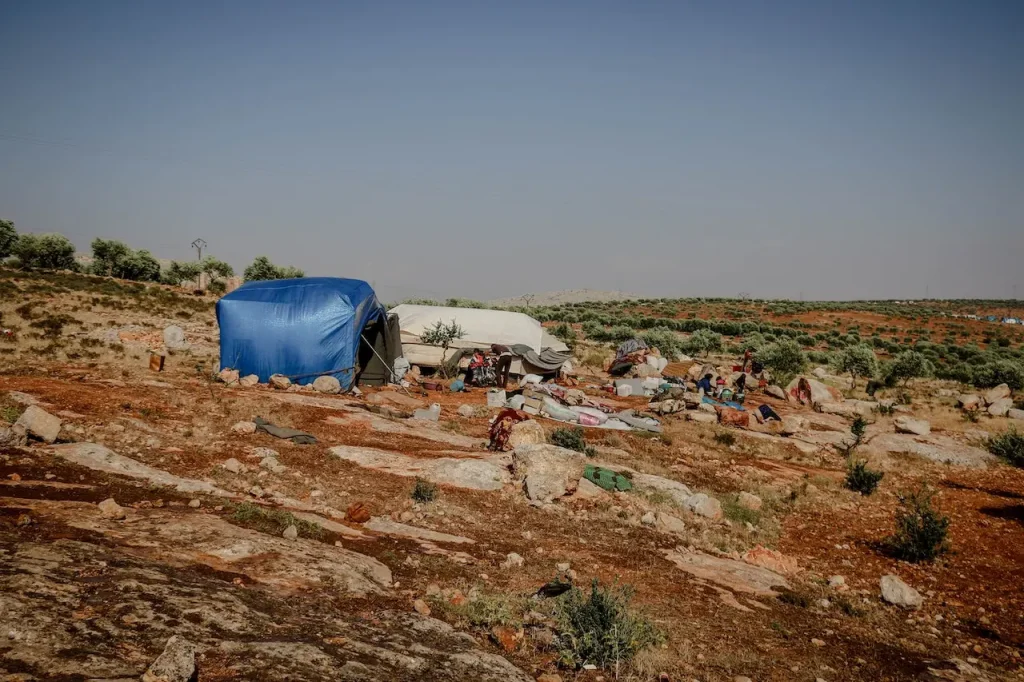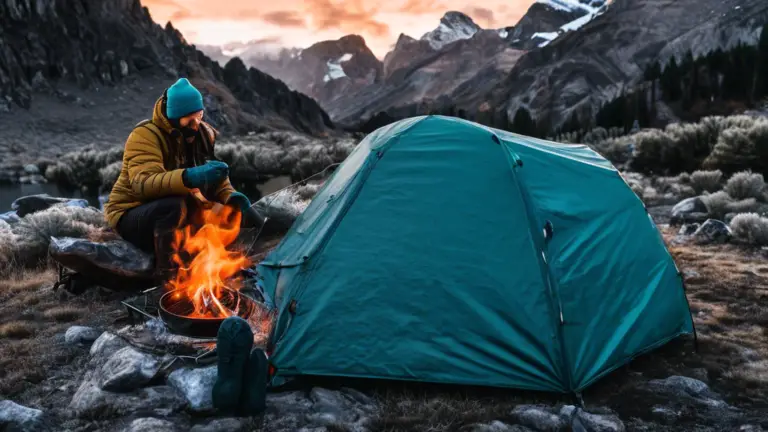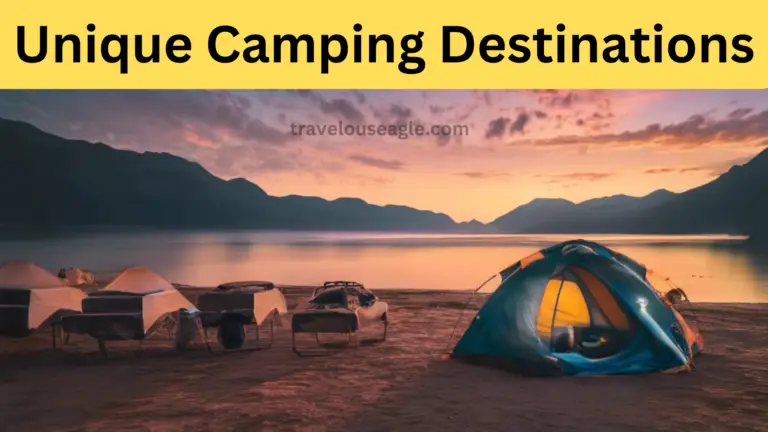What Is Dry Camping and How to Enjoy It: Exploring the World of Dry Camping
Learn about the world of dry camping, commonly referred to as boondocking, when campers forego conveniences like electricity and water to be more in one with nature. The idea of dry camping is examined in this article, along with its permissibility, benefits, and drawbacks.
Learn how to enjoy this special type of camping as well as the necessary equipment for a successful dry camping trip. Dry camping offers a satisfying and independent camping experience, whether you’re looking for financial savings or a closer relationship with nature.
What Is Dry Camping?
Outside of conventional campgrounds, dry camping, commonly called boondocking, is defined as camping without any amenities, such as electricity or water. It is a well-liked choice for people who want to camp but are on a restricted budget or who want to be closer to nature.
There are many places where dry camping is permitted, including public lands, regions that are held by the government, and private properties with the owner’s consent. Since many dry camping locations are free, it is a well-liked option for individuals on a limited budget.
This style of camping, known as “dispersed camping,” is permitted in national parks and forests and enables campers to roam and take in the surroundings.
Even though some people do so, there is an ongoing discussion about whether spending the night in parking lots counts as dry camping.
Boondocking, which enables campers to travel further into natural settings and escape civilization, is sometimes connected with camp in parking lots of large box stores like Walmart or Cabela’s.
When all other campgrounds are filled, resort-style camping may be the only option. Still, it can also be an option for people is preferring a more primitive and independent camping experience.
Is Dry Camping Legal?
When the right authorization is secured from the landowner or land manager, dry camping is permitted. Campers are required to obtain permission from the appropriate parks department before setting up their tents in public areas, such as national or state parks.
To reduce the environmental impact of camping off the grid, it is crucial to abide by all laws and norms governing camping in these regions and to follow the “leave no trace” principles.

Advantages of Dry Camping
- Cost Savings
The fact that dry camping is free or much less expensive than staying at conventional campgrounds is one of the major benefits. The cost of typical RV camping can be high, with overnight rates often ranging from $25 to $80. Campers can save significant money by choosing dry camping, making it desirable for those on a low budget. - Freedom and Flexibility
A greater sense of freedom and flexibility is provided by dry camping. Dry campers can set up their tent wherever they can find the best access to water sources or stunning vistas, unlike regular campgrounds with allotted campsites. This guarantees that campers will always have a place to stay by doing away with the requirement for booking or participating in lotteries to secure a campsite. - Intimacy and Alone Time
Dry camping offers the chance to appreciate privacy in pristine natural settings for those looking for a more private and intimate camping experience. Campers can fully immerse themselves in the quiet of nature away from the crowds and commotion of busier campgrounds, making priceless memories with their camping partners.
Disadvantages of Dry Camping - Legal Factors
Navigating the legal problems of locating proper camping locations is one of the main drawbacks of dry camping. In contrast to designated campgrounds, where camping laws are well-defined, dry camping may be illegal. To prevent trespassing or other legal problems, campers must educate themselves about the rules and regulations of the region they intend to camp in. - Increased Self-Reliance
Dry camping necessitates independence from the camper. Campers must rely on alternate means to meet their basic needs because they cannot access running water or electrical hookups. This involves using solar panels to charge electronics, propane generators for power, and campfires for cooking. Using these alternative techniques increases the amount of responsibility and work required for the camping trip. - Extra Weight and Cargo
Campers must transport additional supplies to have a comfortable and secure dry camping experience. This involves having enough water available for drinking, cooking, and cleaning and having an emergency kit on hand in case of unanticipated circumstances. Off-grid power sources like batteries or generators can be required to meet energy needs. These additional items can increase weight and perhaps restrict mobility, so carrying them requires careful organization and planning.
However, to fully enjoy this special camping experience, campers must be aware of legal requirements, be ready to be self-sufficient and carry essential supplies. Dry camping offers cost savings, freedom, and privacy.
Essential Supplies for Dry Camping
A few essential goods are needed for dry camping to be successful and fun. It’s crucial to have the following necessities before heading out into the wilderness: - Recreational vehicle (RV) or Van: During dry camping, your vehicle functions as both a mode of transportation and a place to stay. Prior to setting out on your excursion, it is imperative to confirm that your car is in good working condition.
- Food: Keeping food available and fresh when off the grid is crucial. Perishable goods can now be stored more easily thanks to the newest hard coolers on the market, which can sustain cold temperatures for up to 10 days. Learn effective cooler packing methods and stock up on little dry goods for emergency food.
- Water: A dependable water source is essential for dry camping. For accessing water, it is advisable to have several redundancies in place. It’s crucial to have water purification pills and a water filter pump or straw for emergency water treatment in addition to carrying containers of fresh water.
- Power: Alternative power sources are required for off-grid camping. Several choices range from onboard generators to solar-powered radios and phone chargers. To ensure that there will be enough electricity throughout your dry camping vacation, take your power requirements into account and select suitable equipment.
- Emergency Supplies: Safety should always come first when camping far from civilization. Basic emergency supplies must always be on hand. A strong tactical flashlight, spare batteries, matches, a firestarter, an emergency radio, and a well-stocked first-aid kit are a few examples. While dry camping, having these goods on hand will help you keep ready for unforeseen events and crises.
By ensuring you have these necessary items, you can set out on a dry camping excursion well-equipped and ready to take in the peace and quiet of nature while being independent in your RV or van.
Conclusion
In conclusion, what is dry camping? Boondocking, also known as dry camping, provides a distinct and self-sufficient camping experience for individuals who like to be more in tune with nature or have a limited spending capacity. It entails camping without conveniences like power or running water and permits campers to erect their tents anywhere they have permission, including on public grounds and private property.
Although there are benefits to dry camping, such as cost savings, freedom, and privacy, there are also drawbacks to take into account, such as legal ramifications, increased self-reliance, and the requirement to carry more supplies.
Campers may completely enjoy the dry camping experience by being informed of the legal requirements, being ready for self-sufficiency, and having necessary supplies including a dependable vehicle, food, water, power sources, and emergency supplies. Therefore, dry camping can offer a fulfilling and unique experience, whether you’re looking for seclusion in nature or to save money when camping.
FAQ
Why is it called dry camping?
Why is it called dry camping?
How do you shower when dry camping?
Alternatively, campers can pack additional water and biodegradable soap to take a shower if water is scarce or unavailable. To reduce the negative effects on the environment, it’s crucial to strip down at least 200 feet away from the campsite and any water sources.
Read Also: What Is Hiking: Exploring Types, Benefits, and History | Hiking Guide


